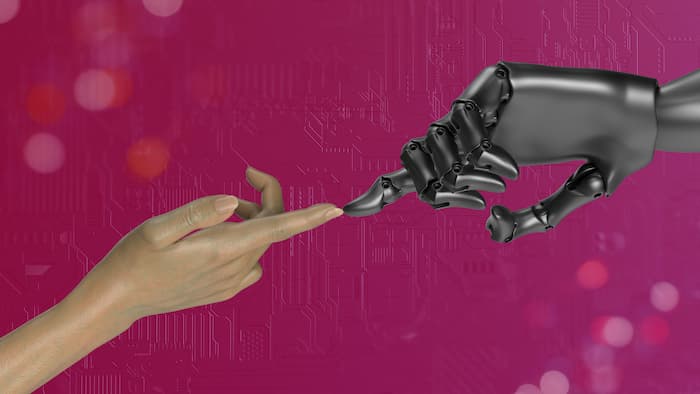The IENYC Hustle
The IENYC Community
Living in NYC
Industry Insights
In the Classroom
Business is changing fast, just as it always has. But right now, that change is accelerating quicker than ever before. If there’s any doubt about how different things are going to look just a few years from now, here are some numbers for you.
By 2030, 30% of current hours worked could be automated. That’s going to mean a large number of jobs will transition to new skills, some of which don’t exist yet, or are at least only just emerging. In fact, Europe and the US are predicted to need around 12 million occupational transitions, respectively.
Whole industries will be affected. Demand for workers in STEM-related, healthcare and other high-skill professions is likely to rise. Meanwhile, demand for office and production-line workers and customer service representatives will almost certainly decline sharply. Concurrently, of course, the need for data science and AI-related skills will surge.
Faced with that outlook, business education must adapt to prepare graduates for the world they’re actually going to encounter when they take the first steps on their career paths. Even putting aside for a moment the spectre of AI that looms so large over business, employers are already looking for different skills.
There’s a new emphasis on soft skills such as critical and innovative thinking, agility and strategic adaptability. So much so that soft skills can now make or break a hiring decision, regardless of a candidate’s other qualities or suitability. And this reflects a greater focus on skills-based hiring generally. Your CV might open doors for you in business, but it’s your skills that will get you through them.
So the future of business schools will either see them align their curricula to provide students with what tomorrow’s business needs, or fade into irrelevance.
Gartner describes AI as a “whirlwind,” recognizing its duality of opportunity and risk. It’s already reshaping workflows, operations, management and decision-making. It can create and drive new revenue streams and reduce costs. And, in the right hands, it can extract actionable insights from huge data sets to provide a competitive advantage.
So, yes, that huge number of work hours that will be automated represents a challenging paradigm for the global economy. But it also means that confidence with AI and other emerging digital tools is already a non-negotiable skill across many industries.

Business education must focus on demonstrable competencies where they matter most. But equally essential, it must also embed experiential learning—through internships, real-world projects and cutting-edge digital credentials—to remain relevant.
Degree structures also have to reflect the globalized business landscape. As Forbes has said, “With programs going global through partnerships and exchange programs or international immersion, the quality of higher education has considerably improved.” With silos so often being bad for business, education in isolation is usually similarly bad for students. Collaborations between leading institutions that provide students with overseas exchange opportunities are already commonplace.
This is now expanding further as governments seek to leverage the benefits of international educational facilities to build the knowledge-based economies in their own territories.
IENYC already transcends traditional business education boundaries, with programs that impart in-demand skills, expose students to the latest tech and embrace innovation, sustainability and a global mindset. But in a role that’s so pivotal—namely, arming students with the skills of tomorrow—what goes on beyond the classroom is just as important.
We believe we already know what the future of business education looks like. It means building partnerships with world-leading organizations to provide the essential, top-level internships and real-world project opportunities students need. It means imparting practical skills through hands-on educational methodologies; and delivering impactful and innovative opportunities to gain experience in the real world of business and beyond.
Come and check out IENYC—where the future of education begins.
SHARE THIS POST
Meag Gardner is an experienced writer, linguist, translator, and editor from Indianapolis, USA. She’s done anything from storytelling for luxury hotels in the Caribbean to song lyric translation, academic writing for universities, podcast production, app development, and she even ran an art gallery in Madrid, Spain.
Meag completed a B.A. in Spanish Language and Literature at Indiana University, where she earned a minor in International Relations and a Certificate in Translation & Interpretation Studies. During this time, she completed a semester abroad at the Universidad de Salamanca in Spain. She later completed a year of postgraduate studies in Fine Arts at the Círculo de Bellas Artes in Madrid, and several certificates in programming and software development. She has combined her love of language and storytelling with art and technology for a broader and deeper understanding of modern communication.
Meag is now the Head of Brand Narrative at IE University and a contributor to The Blueprint at IENYC. She is also an Adjunct Professor at IE University in Segovia, where she teaches Research & Academic Writing.